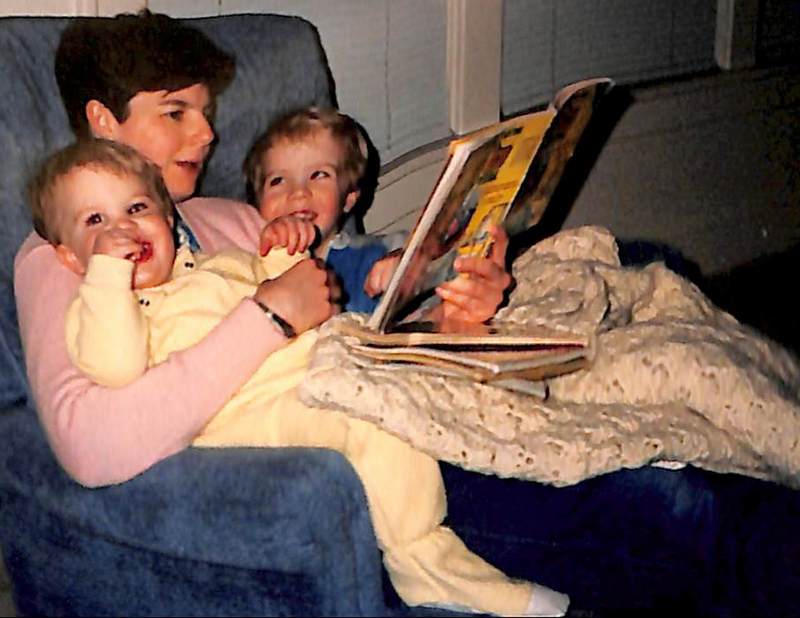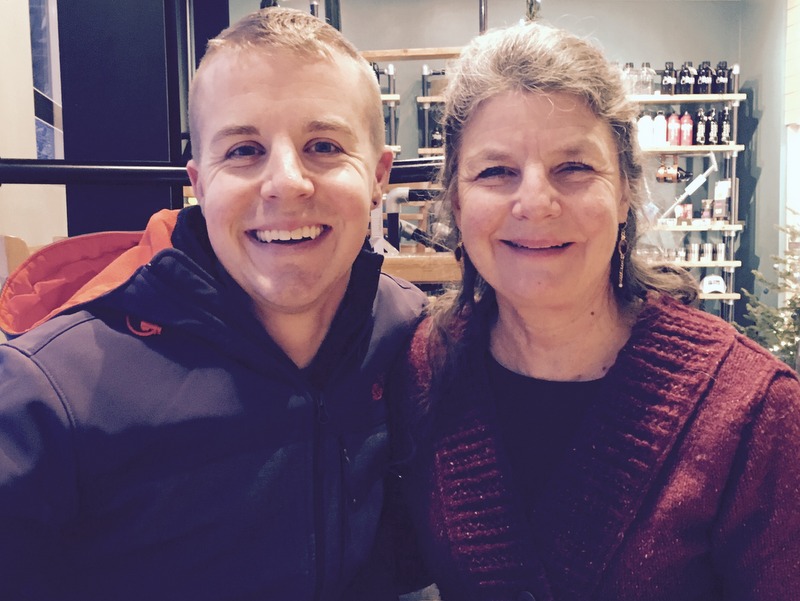Unbeknownst to me in 1990, Dr. Rudine Sims Bishop highlighted the necessity of providing children with diverse books in an essay titled, “Mirrors, Windows, and Sliding Glass Doors.” That same year, I was immersed in an array of childbirth, parenting, and picture books. I loaded infant Colin and three-year-old Eric into their car seats for weekly excursions to Tiny Tales story time at our public library. Eric and I unpacked bagfuls of board books and picture books on our way in, then replenished our supply after Tiny Tales ended.
Occasionally, I carted those books plus some of our own to the childbirth education classes I taught and scattered them on my students’ chairs. At the beginning of class, I pitched our public library and the joys of reading to children, ending with my hope that my students’ babies, like mine, would find comfort in “warm laps and good books.”

In 2017, years before I uncovered Dr. Bishop’s words, I penned a blog post titled, “Queer is not a bad word.” I reflected on my early parenting years, then added:
“Fast forward twenty-five years. I wish I had known to look for LGBTQIA books. That acronym was not in my vocabulary back then, but acceptance, empathy, love, and tolerance were. I have since learned that I am an ally. And Eric is queer. He is also a Fulbrighter. A City Year AmeriCorps alum. An Education Pioneer. A TeamChild Board Fellow. And an MPA. A recent graduate of the University of Washington, he was nominated to be both a Husky 100 and a Luce Scholar. He is fluent in Spanish; has lived on four continents; and is compassionate, kind, and an inspiration. His sexual orientation does not define him.”
My days of hands-on parenting, childbirth education, and obstetrical nursing are long behind me. Now, I work in a high school library. There’s a chance some students whom I helped to welcome into the world years earlier have since recommended books to me.
But students in parts of our country have less access to books than others do. As reported last month in U.S. News and World Report, “Book bans, while not a new phenomenon, have gained momentum in recent years. Censorship attempts have most recently targeted books that include LGBTQ characters or address issues of race and racism.”
In my quest to learn more, I discovered Dr. Bishop and her research. Her advocacy for literature that mirrors children’s experiences or provides glimpses or portals into the lives of others is more important now than ever, as I wrote in a June 16 Seattle Times op-ed.
Thirty-two years have passed since Dr. Bishop wrote: “When there are enough books available that can act as both mirrors and windows for all our children, they will see that we can celebrate both our differences and our similarities, because together they are what make us all human.”
If I were still teaching childbirth education classes, I would scatter board books and picture books—including The Day You Begin, Oglivy, Love Makes a Family, Antiracist Baby, and Love You Forever—on my students’ chairs. I would tell my students I have two adult children, “One is queer, and one is not, and I love them with all my heart.”
I would share my hope that their babies find delight in warm laps and good books, plus I would add a pair of fervent wishes. “May your children grow to discover and embrace their authentic selves, and may you harbor these words from Love You Forever in your hearts: ‘I’ll love you forever, I’ll like you for always. As long as I’m living, my baby you’ll be.’”
